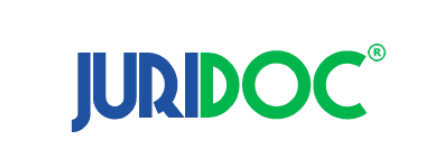
Meet Juridoc, the Brazilian answer to the likes of LegalZoom with added legal analytics, plus a legal bot based on IBM Watson technology and an automated document marketplace as well. Or at least that is the long term product development plan.
Fundamentally Juridoc is a comprehensive platform, combining a raft of different, but linked, legal tech applications in one place.
It’s the brainchild of Maxime Troubat, a Frenchman, who moved to Brazil’s Sao Paulo (pictured above) a few years ago and got bitten by the legal tech bug back when it was still seen as unusual to combine law and tech in the country.
‘Two years ago there were no legal tech companies in Brazil, today there are over 100 and lots of law firms are interested in what they are doing,’ says Troubat (see recent article on Brazil’s legal tech scene).
As for Juridoc, this is what it does, or aims to be able to eventually.

The second layer is the non-tech human lawyer capability, with several dozen local lawyers available to check the contract if you wish them to during the creation phase.
Documents can then be sent directly to the relevant parties, whether internal or external counter-parties, with changes and negotiation of the contract conducted online via the platform.
Then there is the analytics layer, which is in the same field as companies such as Synergist, Avvoka and Juro, i.e. it provides a data collection and analysis capability that shows the document creator useful insights into how contracting is taking place over a period of time, e.g. an inhouse lawyer could see which terms are challenged by the other party the most in certain types of sales contracts, for example.
And, then there is the legal bot, powered by IBM’s Watson NLP technology, that is aimed at providing input to the person completing the contract and which appears next to the template as a guiding hand.
Finally there is a market place where people can sell the automated templates they have created, a bit like PartnerVine does already in Switzerland, to generate extra revenue for their business.
Artificial Lawyer has to admire the ambition, as all of these combined capabilities seems to amount to about five products in one, which is no easy feat to get right, let alone develop each one of those stages.
Troubat says that V.1 was a proof of concept and that generated a lot of interest from firms and corporations in Brazil. An MVP (minimal viable product) will be out soon.
Being realistic, it’s likely that Juridoc will probably have to spend time perfecting the doc automation part, which is its foundation stone, before zooming off into the other capabilities, some of which could constitute years of work just on their own.
Clearly this is a major undertaking and it’s perhaps tempting to wonder if this is all possible to integrate in one go. However, this kind of joined up thinking about legal tech is admirable. Moreover, why focus on building one application when you can try to build an entire platform of interconnected capabilities?
Some reasons why not are: the cost, the quantity of coding talent needed and the time involved, but, where there is a will – and the funding – there is a way. Good luck to Juridoc. Let no one say that Brazil’s legal tech scene is lacking in ambition.
2 Trackbacks / Pingbacks
Comments are closed.